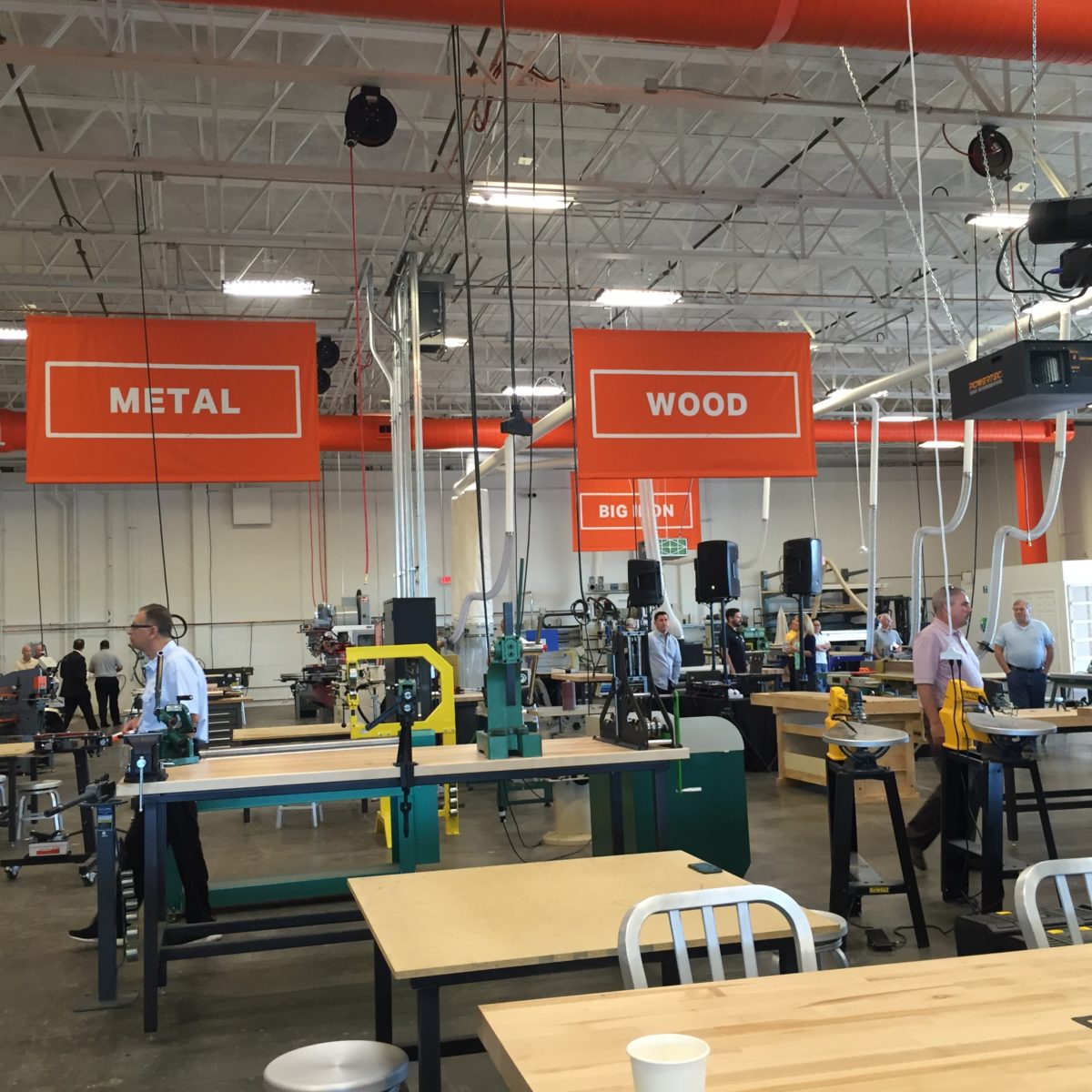Two and a half years after opening inside City Garage, The Foundery will close its makerspace at the Port Covington innovation hub on Sunday, Jan. 27, citing a lack of funds to continue operations.
The news was made public Monday via a statement, which said the makerspace plans to return to its original location on Central Avenue.
Opened in 2016 in 20,000 square fteet of space inside the Port Covington space designed for entrepreneurs and companies making physical goods, the Foundery offered access to industrial tools as well as classes providing training.
Founder Jason Hardebeck said the business was growing as it recorded more than 10,000 visits and frequently filled classes. Hardebeck likened the closure to the case of other startups that run out of funding to cover costs in the short-term.
“We had record revenues in 2018,” Hardebeck said. “Everything was looking great, but we just ran out of runway.”
As a result, members of the Foundery’s full-time team of 12 people will be laid off. Hardebeck called it a “rockstar team,” adding, “they will all land in great places.”
Since releasing the social media posts late Monday, Hardebeck said he’s already heard from users of the space who were disappointed to hear that it would be closing.
Classes will be held as scheduled through Sunday, and the makerspace is also providing a chance for users to move belongings.
We've proven over the last two and a half years that there is a huge need for this in so many different ways.
The Foundery offered industrial-grade tools for cutting materials and specific areas dedicated to woodworking, fabric, a blacksmith shop and other metalworking. The idea was to provide tools and equipment that could provide for a larger fabrication effort than a small business or individual maker would typically have available, Hardebeck said. In July 2017, the makerspace shifted to a pay-as-you-go model that centered on day passes, as opposed to full-time membership or specific rented space.
“Our focus was always on access,” Hardebeck said.
Providing workforce development was part of that focus. Through a partnership with the Center for Urban Families, it ran seven cohorts of a bootcamp program that offered training and connections to employers. The heavy-duty tools provided participants with training on industrial equipment.
“We developed an approach that made it accessible to the entire population and that’s what I think is the most special aspect of the Foundery,” he said.
Hardebeck plans to apply lessons learned and continue work to expand workforce training efforts as the space moves back to its original location near the corner of Pratt Street and Central Avenue in Southeast Baltimore that initially opened in 2013. Future plans always called for a location there, and now development on that effort is expected to ramp up later this year.
As for the space within City Garage, a spokesperson said there are “several options in play” for the space. The former bus garage is also home to Betamore and Under Armour’s Lighthouse facility, where the brand works on new approaches to manufacturing.
Makerspaces have spread due to their ability to provide shared access and serve as launchpads for new skills and businesses. Yet the business model has remained tougher to scale: Our sister site Technical.ly Philly has reported on multiple makerspace closings, and the ambitious effort from TechShop that opened multiple locations across the country ended when the company filed for bankruptcy. (The Foundery received initial backing from Sagamore Ventures, which the statement specifically thanked and Hardebeck said “enabled us to get as far as we did.”)
The Foundery opened in City Garage as several new makerspaces arrived on the scene, notably Open Works in Station North. Hardebeck sees demand for such spaces continuing to outstrip supply. Classes at the Foundery were full over multiple months, he said, and the space found its own audience.
“This is something that needs to happen,” he said. “If anything, we’ve proven over the last two and a half years that there is a huge need for this in so many different ways.”







